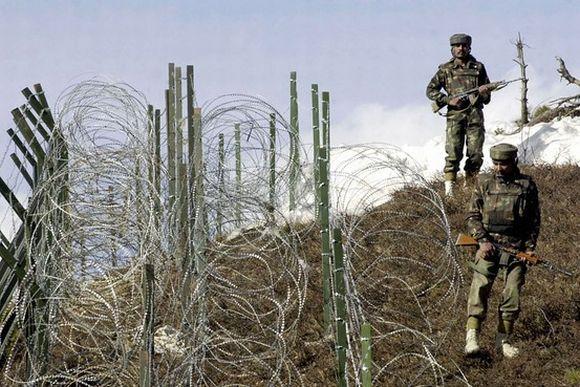
'You cannot have a flat strategy on Pakistan, you must have a rounded approach looking at all the dimensions and then working in the overall interest of our country,' External Affairs Minister Salman Khurshid tells Anita Katyal in an exclusive interview.
Given recent developments, how would you describe India's relationship with Pakistan?
I think it is a lost period, a seemingly lost opportunity. Not entirely lost, but certainly a major setback. I am sure Pakistan knows it and we would like to reiterate that.
Whatever is happening vis-a-vis Pakistan, we have to approach it with a better understanding of Pakistan. That is not to say we are soft because you understand them better, but when you deal with a protagonist in a situation of conflict, you have to look at some ground realities in preparing your response.
It is important we don't have a blind, single-minded, approach to Pakistan, but understand its ground realities and then work out a strategy that will effectively strengthen the people in Pakistan, whatever their numbers may be, who want an honest and peaceful relationship with India.
Talking of ground realities, is it India's understanding that Prime Minister Nawaz Sharif is not in control and that the Pakistan army continues to have the upper hand?
It will not be fair for me to comment on Prime Minister Sharif's position. But there is some standard understanding of governance in Pakistan, the role that the ISI (Inter Services Intelligence) plays, of the ISI being intertwined with the army, the army being accustomed to a large footprint in governance issues, the attempts being made by the civilian government to contain the influence of army, the strength it gets from the fact that for the first time there has been a transfer of power from one elected government to another.
I think these things need to be looked at carefully in strategising on Pakistan. You cannot have a flat strategy on Pakistan, you must have a rounded approach looking at all the dimensions and then working in the overall interest of our country.
...
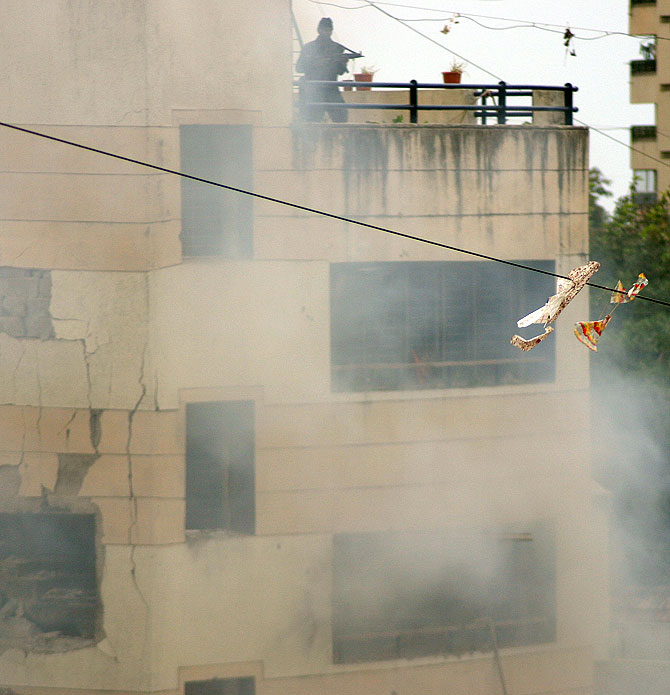
There is buzz about Prime Minister Manmohan Singh's possible meeting with his Pakistan counterpart, Nawaz Sharif, in New York. There are reports that Pakistan is cool to this meeting given the hostile public mood here.
I think there is too much speculation. Pakistan has shown adequate interest in meeting and invited the prime minister very explicitly, not once but several times.
But we have to factor in public opinion and see how incidents have unfolded and their impact and in the context of what has happened and what is likely to unfold.
The prime minister will factor in all this and take a view.
It will not be an easy decision and whatever decision he takes, it will be in sync with the expectations of Indian society. I think he knows better than anybody else how to handle this. Closer to that time, when we are in a position to talk about it more openly and more specifically, we will do so.
There are many issues here. When you talk you must have a sense there will be deliverables; that you will not come back empty-handed and face public criticism. There are many important issues pending with Pakistan. We expect some delivery on 26/11 attacks -- there are no two ways about it.
What that can be, what speed and in what manner, those can be discussed. But there has to be some delivery on 26/11 and there has to be some delivery on dismantling of the terror infrastructure.
Within the broad framework of the things Prime Minister Nawaz Sharif has been projecting, there are these specific things which need delivery. You can't -- without them -- expect a comforting arrangement between us.
Is India's position being dictated by the approaching general election?
Yes and no. At election time everything gets accentuated. But these are not just election issues. These are issues which are fundamental to our psyche, fundamental to our responsibility as a government.
You may talk about emphasis, you may talk about the extent of engagement, but these are issues which cannot sidetracked.
...
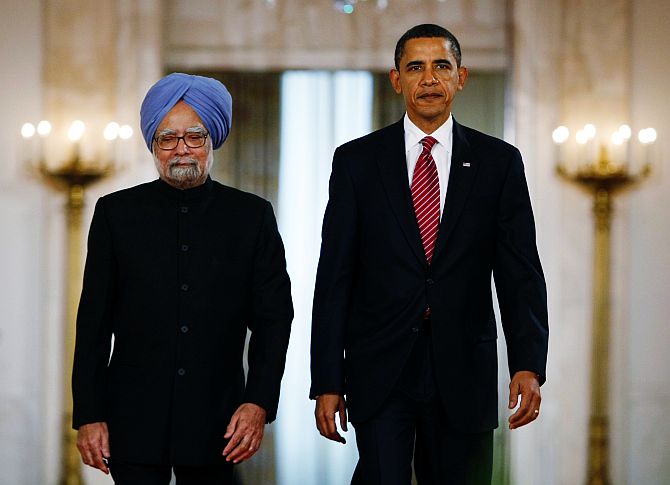
Prime Minister Manmohan Singh is scheduled to meet President Barack Obama next month, but there is a perception that there is a drift in the relationship between the two countries.
That's not true, there are points of intensity because of convergence of events or episodes or given priorities which is what happened. You have to give a special intense push, but you can't do it all the time.
What you have to do is to work on the achievements that came about between the prime minister and President (George W) Bush. There has to be gradual plateauing, a gradual consolidation.
What we have to do is work on the outcomes and achievements that came about between the prime minister and President Bush. Some are difficult outcomes signing of commercial agreements after the civil nuclear agreement takes a lot of reflection, requires a lot of work and time. We are going to commit a lot of money for a long time.
There are liability issues which we are trying to sort out; there are environment issues, ultimately there are cost issues. These are not small sums (of money).
We are trying to move forward as quickly as we can, the department of atomic energy has to be on board, their technical experts have to be on board.
As far as the American economy is concerned, they have some constraints about H1-B visas. We are lobbying very hard to persuade them that it is not about being adverse to India's interests, it is also critical for keeping up the momentum of our relationship, it is also important for America's economy.
It is not that we are taking away their jobs, we are injecting a lot into their economy with our economic model which we have introduced.
These are two separate countries looking at their priorities and the conditions prevailing in their respective countries.
Obviously, there can't be any quick fix in such cases. But we are working on a sustained, consistent and positive engagement that will continue.
...
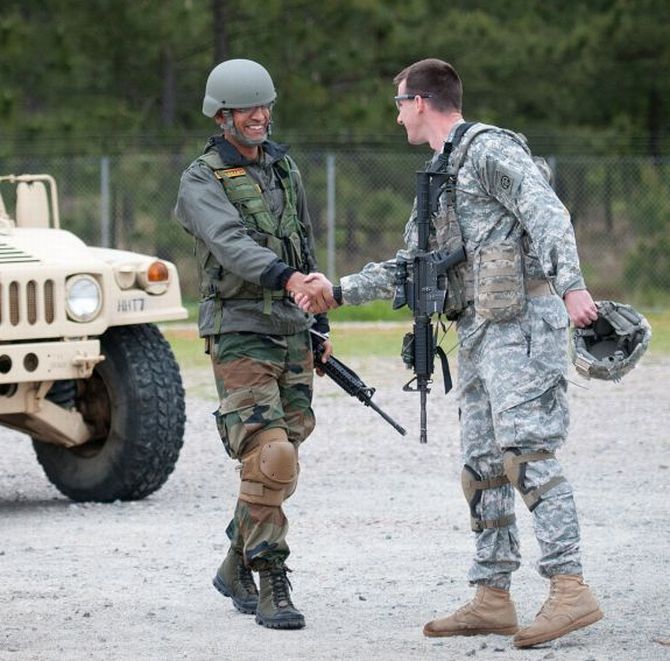
Where does India stand with regard to its defence relationship with the US?
We are doing an enormous amount of exchange with the US in the field of defence. We are buying an enormous amount of equipment from the US. We are steadily moving towards a new relationship which goes beyond the buyer-seller relationship.
We have the largest number of (military) exercises with the US, we have many areas of consultations with the US which were unheard of in the past.
In a discreet sort of way, our collaboration with the US in the area of defence is very substantial.
There has been talk of going into co-production. Is that going to materialise?
Yes, but that's not just for the US alone, it is available for all our strategic partners. It is a choice they have to make. We believe that is the future as far as the defence industry is concerned.
We have to move beyond the vendor-seller relationship; it has to go much further, we must collaborate together.
And as you know, in our policy we have said you can have more than a certain percentage on a case by case basis of investment in the defence sector.
..
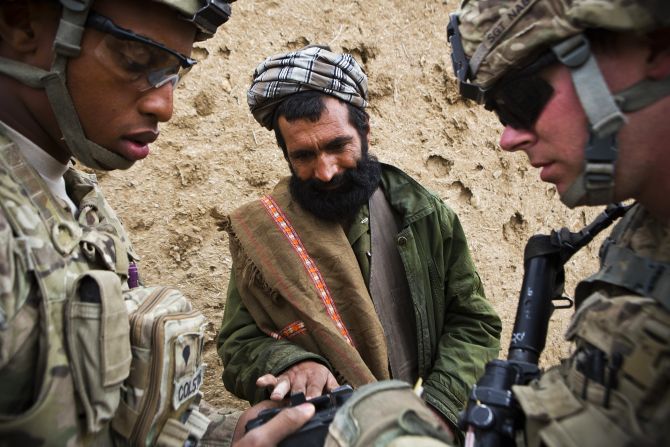
The US is set to withdraw troops from Afghanistan. What does New Delhi expect from Washington as far as India's future role in the region is concerned?
The US has been good enough to say that they will not take initiatives that are adverse to India's interests.
The important thing is that they recognise our interests. We are not always entirely on the same page with US policy thinkers on Afghanistan.
The US has an immediate issue, an issue it has to resolve; we don't. We do look at a larger, long-term perspective in the region.
The US hopefully will remain engaged in the region in a manner in which Afghanistan wants it to remain (and) will not retreat completely from the region and leave Afghanistan to an uncertain future.
We believe whatever the arrangement under the newly negotiated bilateral security agreement between the US and Afghanistan, we don't need an agreement to stay; we are part of the region.
India and Afghanistan are very solid friends. We have always said we don't have an exit policy, there is no drawdown for India; there may be a drawdown for the US.
Let us see how much the US is required to remain engaged by Afghanistan and how much they can remain engaged, for they have compulsions at home. Our commitment and willingness to stand by Afghanistan beyond 2014 is apparent.
Pakistan has an edge both historically and geographically over India as far as Afghanistan is concerned. How do you see the role India and Pakistan are likely to play in Afghanistan after the US exit?
We are not sure what Pakistan wants. Pakistan has given signals of collaborating together on Afghanistan; probably it is too early for something of that nature. But we can align our positions on Afghanistan and we can see ourselves and Pakistan can see India as not having an adversarial position on Afghanistan.
That is good for Afghanistan and good for us.
But obviously there is a concern that that Pakistan periodically expresses to Afghanistan and the US that strategic depth is required and India should not impinge on its strategic depth. I am not sure this is a legitimate argument that they can place against India.
It is the feelings of the people of Afghanistan that you cannot ignore -- they want us to be there, they have faith in us, they trust us, they believe our involvement is important. Therefore, what we do is in response to what Afghanistan desires.
Pakistan should not see us as a problem as we have imposed a natural restraint on ourselves to remain a part of the solution and not become a part of the problem.
We will never be a part of the problem in Afghanistan and Afghanistan knows it. What we can do to be part of the solution and to participate in it is something we will have to work on from time to time.
...
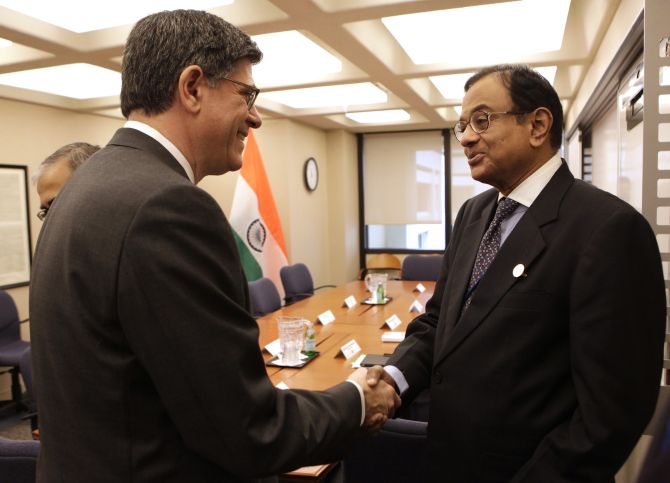
The US has a lot of outstanding issues with India on the economic front. There is widespread concern over the lack of investor-friendly climate in India. Surely this will come up during the talks?
We have already told them. PC (Finance Minister P Chidambaram) was in the US along with the commerce minister and they met industry representatives. The reports we have received from them is that they were able to substantially allay fears about concerns expressed.
Also, it is important that the steps that are now being taken to address the issues of economic downturn -- as indeed to address issues of onward reform -- are there for everyone to see.
I don't think it is right to think that the US has unmanageable concerns about India's economy. There are still a lot of people who believe that India has tremendous potential.
But, of course, their entire wish list cannot be politically implemented in our country unless there is adequate consensus in the country. And the last year of the government is not the best time to take decisions which will take two to four years to come to fruition. And if we do take them now there is a chance they will be misunderstood.
So we are introducing certain changes which will not upset the apple cart domestically and that will give clear indication of confidence to the outside world.
What are these changes?
On transfer pricing we have already done it, on retrospective tax issues, the Vodafone issue. The finance minister is looking at these issues. Hopefully by December we will have some solution to some of the issues which have been raised.
Other issues like double taxation -- hopefully these will be sorted out by the end of the year.
There are concerns in Indian industry about the US immigration policy, especially regarding visas for skilled workers. Surely these will figure in the upcoming discussions between the two countries?
It will be raised. I raised it with (US Secretary of State John F) Kerry, but he clearly said that it is part of the Democratic aspiration expressed in the Senate. He also said that for him to persuade the Senate to take a more liberal view of India's aspirations requires some delivery on commitments.
India can't say we want and we will not give. India has to find a right balance between give and take. I think we have to negotiate like good, solid, businessmen -- what is it that we need and what is the price that we are willing to pay for it.
There is a view that nothing much will be achieved during the prime minister's visit. President Obama is preoccupied with Syria and Prime Minister Singh is constrained because of next year's general election.
That's not right at all. This is a legacy lap, and a legacy lap is important.
...
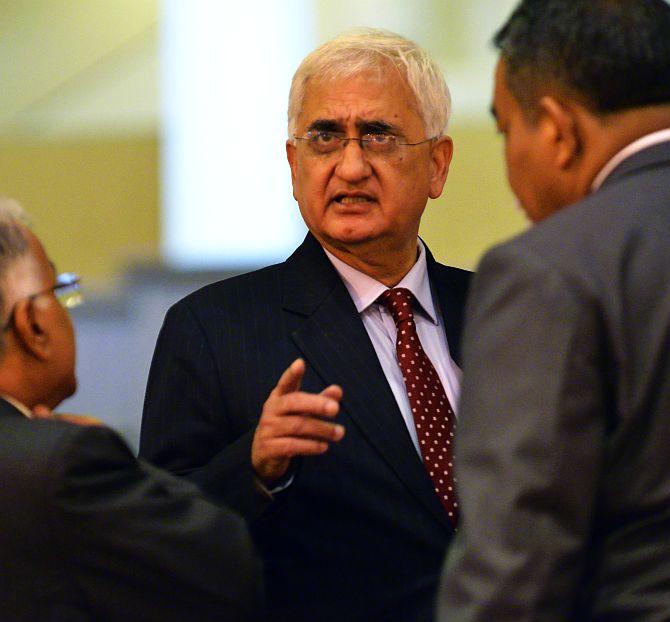
Is it not correct that the implementation of the US-India civil nuclear agreement has hit a roadblock while we have gone ahead with the agreement with Russia, France? Where's the hitch?
There is no hitch. All those things are moving forward in parallel. It may be that things are not moving as fast as we would like on some items and not so fast as they would like on some items.
There are no big jumps because these are very important areas with far-reaching implications and long-term commitments. But everything is moving forward.
I don't think it is fair to compare it to Russia because Russia was dealing with us when the Americans were not willing to deal with us. The Russians have been in the game with us for a long time.
The Russians can also say we were with you when the Americans were boycotting you, but now you are looking at America and not at us.
I think we have to be fair to everyone, we have to maintain a balance.
Then there are huge, huge internal issues which we have to tackle... twice people have gone to the Supreme Court on nuclear policy issues and on specific nuclear plants.
Is it because India has not delivered on commitments? Is the problem on our side or theirs with regard to technology transfer?
It is both. We have to deliver because we have to give them the bottom line, we have to sign the checks; if we don't sign, we are not delivering. They are not in this for charity. It is important for their economy, their way of life, it is also a question of jobs and then it is about footprint, a much larger footprint in the world.
We have to address the issue of what it costs us, not what it will cost us now but also what it will cost us in case of an issue of liability.
There are some issues on their side which are still continuing, and we have succeeded in addressing them substantially if not entirely. There are issues which we will continue to address, and we have to address.
But if you ask is the bottom line positive or negative, I would say it is positive; substantially positive. But obviously the question is, is it a buyer's market or a seller's market?
Depending on whether it is a buyer's or seller's market you would see assessments of whether we have moved far enough or not. I would say we are on very solid ground.
What are the expectations from the prime minister's visit to the US? Can any tangible results be expected?
The prime minister is desirous that the early works agreement should be entered by the time he is there. We are all committed to it. We would have liked to do it earlier, it is in the process.
I can't predict how much of the work will be done for us to sign it during the prime minister's visit, but considerable and substantial progress has been made. It is an important milestone as far as our relationship with the US is concerned.